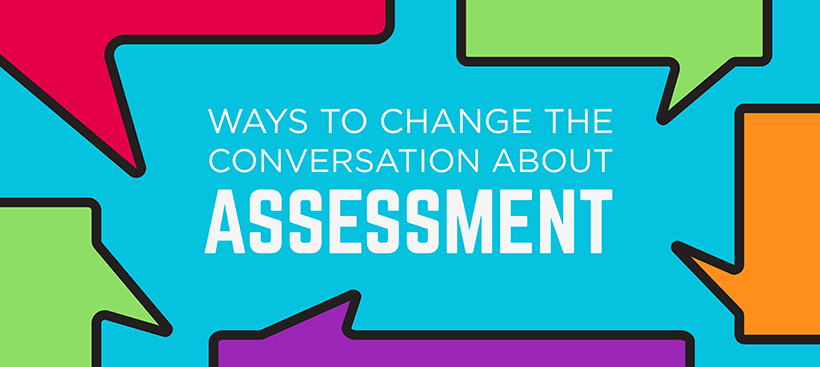From the NCTE Standing Committee on Literacy Assessment
Welcome back to a new school year! Assessment, whether formative or summative, classroom-based or standardized, will continue to be a big part of what we do as classroom teachers. While we sometimes complain about it, assessment is an integral component of literacy teaching and learning. As NCTE’s Standing Committee on Literacy Assessment, we have as one of our goals understanding the bigger picture without losing sight of classroom teachers and students.
To help us learn more about what is happening in classrooms, we have listened to teachers tell us about their experiences in the classroom through roundtable sessions at the Annual Convention, the Assessment Story Project, Twitter chats, and other interactive venues.
In 2017–18 we also asked the NCTE policy analysts, members who volunteered to keep tabs on relevant policy discussions and decisions for their state, to answer a survey about assessment and the Every Student Succeeds Act (ESSA) so we could learn more about the implementation of ESSA across the states. We are grateful to the policy analysts who took time to search for information on their state’s response to ESSA.
It’s valuable, we think, for classroom teachers to get a sense of how their experiences and the policies that affect their particular classroom, school, or district fit into the larger mosaic of education across the US.
With that in mind, we are sharing some of what we learned from our survey and how that is informing our work as a committee in this blog, in our 2019 NCTE Convention sessions, and in future blog posts. Below are summaries of four key takeaways from our survey.
Takeaway 1: State test development is dominated by outside vendors. One not-so-surprising trend that came out of the policy representatives’ survey is that accountability testing is still dominated by outside vendors. That is, instead of developing their own assessments that include teacher participation in the decision-making and design of assessments, many states are still relying on off-the-shelf, one-size-fits-all tests for a variety of assessment needs. This is at odds with the NCTE Literacy Assessment Position Statement claim that—as a first principle of literacy assessment—teacher knowledge is fundamental to assessment.
Takeaway 2: Professional development is closely tied to tests. Related to this trend is the link between standardized testing and professional development. Through our survey, we learned that in many districts and states testing drives professional development. Anecdotal evidence from conversations with teachers concurred with the survey responses. In fact, many states use test vendors to provide professional development for teachers. This narrows the scope of professional learning potentially, and such professional development emphasizes the need to raise test scores instead of helping teachers think about many ways of improving teaching and learning more broadly.
Takeaway 3: Technology compromises standardized literacy assessment. Technology, of course, is another important aspect of testing, and our representatives reported many problems related to technology in test administration and results—situations in which students can’t access materials or have sufficient time to complete test tasks. Again, anecdotal evidence, such as this article in the Baltimore Sun, supports what our representatives told us. Other concerns about using technology to assess students’ literacies have been highlighted in one of our blog posts.
Takeaway 4: Test scores are used for a variety of purposes. Finally, the survey feedback indicated that assessment results are used for a range of decisions that include the monitoring of individual student progress; student promotion and high school graduation; teacher and school evaluation; and college admissions and placement. For most teachers, this feedback aligns with our own experiences. However, as the NCTE Literacy Assessment Position Statement explains, effective literacy assessment should serve a specific purpose; thus, using a test designed for one purpose to meet other purposes, which is inappropriate, violates best practice.
These key takeaways from our survey of NCTE state policy analysts informed many of our activities over the last year and will continue to inform the work of the committee as we enter a new academic year.
You can find more information about the survey findings here.
NCTE Standing Committee on Literacy Assessment
CHAIR, Peggy O’Neill (Loyola University, Baltimore, MD)
Josh Flores (Birmingham, AL)
Bobbie Kabuto (Queens College, Flushing, NY)
Becky McCraw (Goucher Elementary School, Gaffney, SC)
Kathryn Mitchell Pierce (Saint Louis University, MO)
Elisa Waingort (Calgary, Alberta, Canada)
Kathleen Blake Yancey (Florida State University, Tallahassee)

